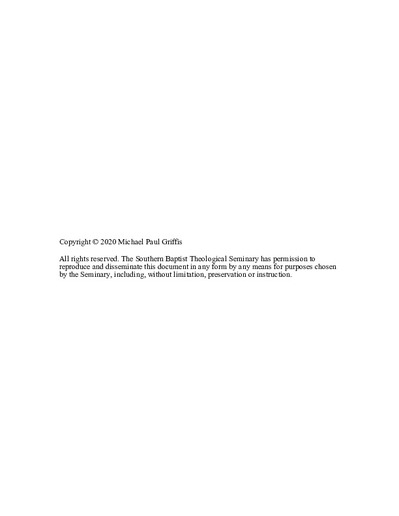| dc.description.abstract | This qualitative, multi-case study introduces and engages a two-pronged dilemma facing pioneer cross-cultural church planting pre-field training programs in the West, namely (1) the continued existence of thousands of unreached people groups in pioneer church planting contexts around the world and (2) the reality of lack of leadership training for pioneer church planting in the global church.
Thus, in the literature review, the study investigates and describes the need in the global church for leadership training for pioneer church planting and church development. The review also examines the cross-cultural leadership training alternatives for pioneer church planting and church development that emerge from the literature. Additionally, the literature review points toward criteria for evaluating the training and qualification of leaders who serve in pioneer church planting based on the three training environments of the local church, cross-cultural training programs, and theological institutions. In the process, the review interacts with key terms and critical topics that contribute to cross-cultural leadership development for pioneer church planting.
Following the literature review, the study describes the qualitative, multi-case methodology for exploring the pre-field training practices of the five training programs. The study methodology includes the research purpose, research questions, design overview, population, samples, delimitations, limits of generalization, instrumentation, and procedures.
Subsequent to explaining the multi-case methodological approach for the research, the study discusses the analysis of the data from fifteen semi-structured interviews from the five pre-field training programs: CrossView Connect, Ethnos 360, the International Mission Board, Radius International, and Wycliffe Bible Translators. The discussion relates a leadership definition and three dynamics of Christian leadership to five comprehensive features of discipleship that emerge in the acronym RTCEE (Relational influence, Teaching, Co-laboring, Evaluating, Entrusting) for any equipping environment where pioneer cross-cultural church planting and development serve as primary goals. These five features of discipleship modify traditional discipleship categories and promote holistic candidate development in four key areas: character (ontology), evaluative wisdom/understanding (epistemology), values/affections (axiology: ethics and aesthetics), and competencies (praxis). Furthermore, the five features of discipleship highlight the central principle that cross-cultural equippers must prioritize leadership development for future pioneer church planters and church developers, regardless of the equipping environment or the individual stages for equipping. In the process of synthesizing the five features of discipleship for leadership development for pioneer cross-cultural church planting, the study also acknowledges that no ideal training sequence emerges from the data. Multiple effective scenarios exist for trainers to incorporate biblical-theological and cross-cultural elements into a foundation of discipleship for leadership development. More significant than an ideal sequencing of training components, the data reveals that trainees should acquire their biblical-theological competency, cross-cultural expertise, and relevant technical skills while growing as Christ’s disciples in a leadership development framework. Additionally, the data demonstrates the key findings that although adequate cross-cultural training involves specialized areas of cross-cultural competency that might require expertise outside the scope of local churches, (1) the most important aspect of effective pre-field training constitutes leadership development through RTCEE discipleship, and (2) the local church serves as the environment in which leaders best establish that discipleship for leadership development.
Finally, the study restates the research purpose and research questions, then explains research implications and project applications. The study also addresses limitations to the research and suggests additional research that others might complete in the subject area of leadership training for pioneer cross-cultural church planting and church development. | en_US |

